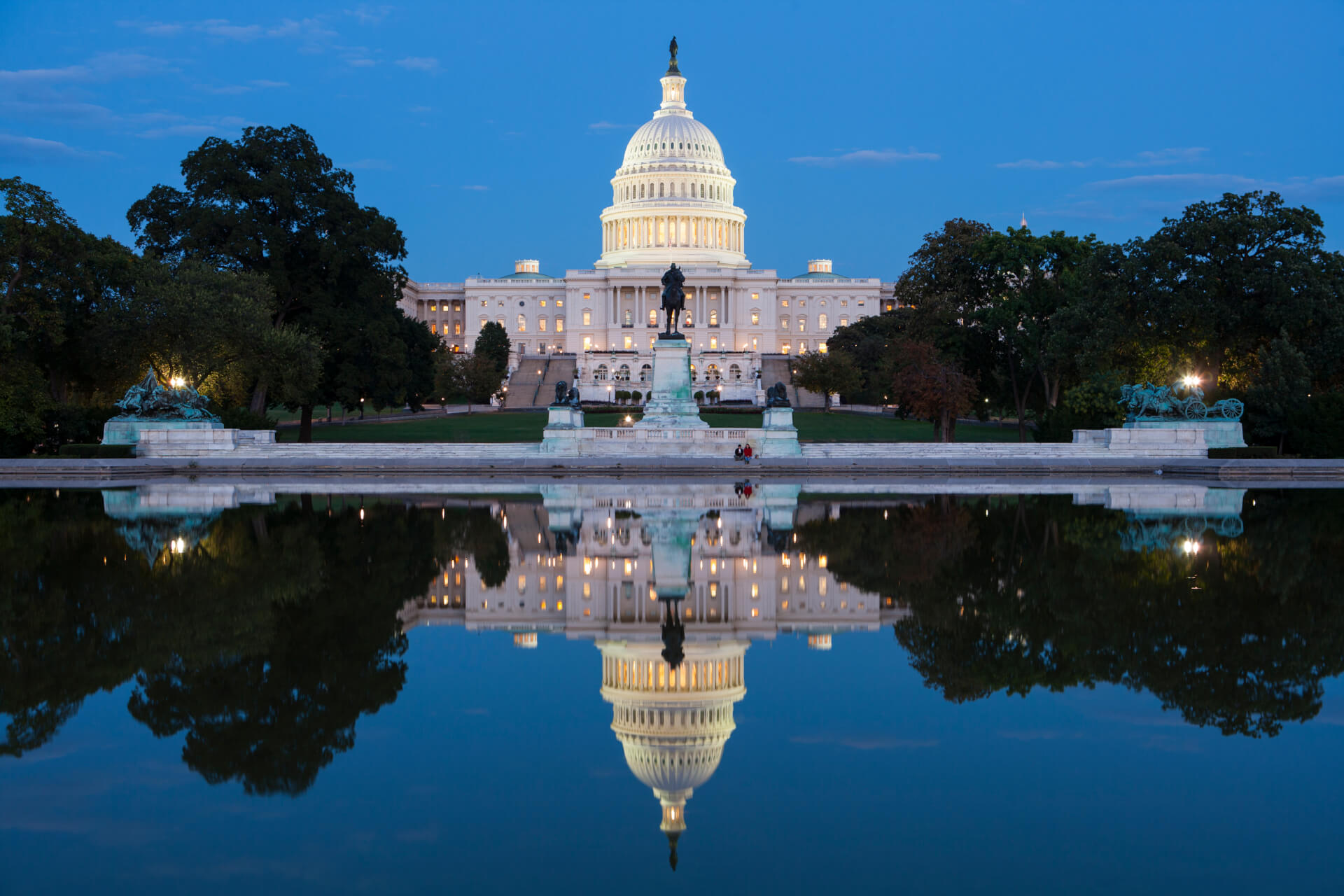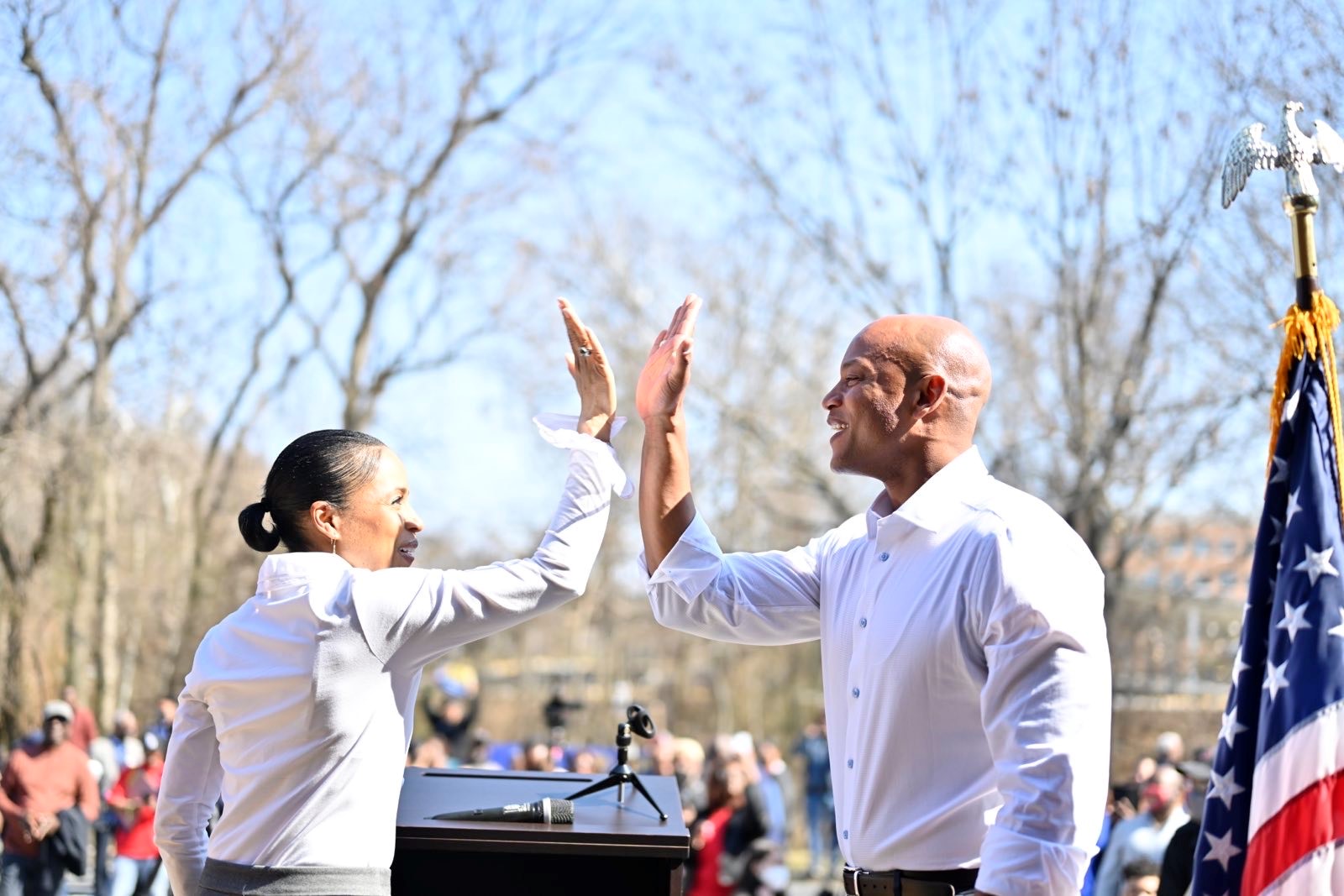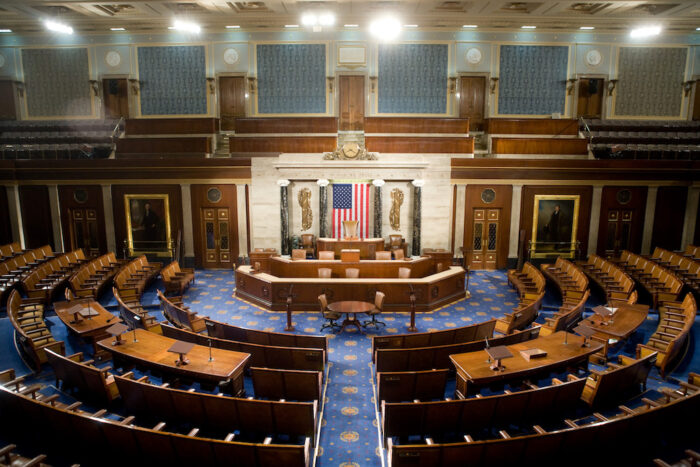Voting By Proxy Becomes Business as Usual in the U.S. House; Some Md. Members Used It Relatively Often

Data from roll call votes shows that 171 U.S. House Democrats and 89 Republicans have voted by proxy at least once since House Speaker Nancy Pelosi (D-Calif.) authorized the pandemic-era practice last year.
Pelosi has now announced the extension of proxy voting until Oct. 1 as the delta variant of the coronavirus continues to spread across the U.S., so remote voting — just like remote work — doesn’t appear to be going away any time soon.
The system, heavily criticized by Republicans, although they’ve used it, has also allowed Pelosi to ensure her slim majority in the House, with 220 Democrats to 212 Republicans. There are currently three vacancies.
In practice, it means a member of the House who’s not on the floor can designate another member to cast his or her vote.
The vote data, compiled by Cronkite News/Arizona PBS, shows that the top 10 proxy voters among Democrats include Donald Payne of New Jersey and Frederica Wilson of Florida in the No. 1 and No. 2 spots.
Payne and Wilson voted by proxy on 242 votes, or 95 percent of the time, the data shows.
The hand tally by Cronkite News/Arizona PBS took into account 254 House roll call votes from Jan. 1 through July 29 and included only proxy votes, so it did not take into account votes for which a member was present or simply absent.
Republicans have said they think the proxy voting is unconstitutional. House Minority Leader Kevin McCarthy, (R-Calif.) filed a lawsuit last year along with 20 other House GOP members challenging voting by proxy.
Members who joined the suit and who also used proxy voting include Reps. Russ Fulcher of Idaho and Mark Green of Tennessee. Fulcher cast 45 votes by proxy, or 17% of all votes. Green cast 10 votes by proxy, or about 4%. Fulcher, who was diagnosed with renal cancer this year and is undergoing chemotherapy, declined to comment and Green’s office did not respond to a request for comment.
Among Maryland lawmakers, Rep. Kweisi Mfume (D) was most likely to vote by proxy, doing so 63 times, or for about 25% of the votes cast during the study period.
Rep. C.A. Dutch Ruppersberger (D) voted by proxy 42 times, House Majority Leader Steny H. Hoyer (D) voted by proxy three dozen times, and Reps. David J. Trone (D) and Anthony G. Brown (D) did so nine times.
Reps. Andrew P. Harris (R), John P. Sarbanes (D) and Jamie B. Raskin (D) never used the process.
Raskin, whose district borders Washington, D.C., stepped in to vote on behalf of Mfume, Ruppersberger, Rep. Pramila Jayapal (D-Wash.), Rep. David Cicilline (D-R.I.) and others more than 100 times.
Exposure to virus
The system has helped members cast their votes if they have tested positive for the coronavirus or needed to quarantine because of potential exposure to the virus.
It’s also helped keep older members home until they could receive the COVID vaccine. More than 620,000 Americans have died from COVID-19.
“Proxy voting in the House was, and is, the best available option that the House has for keeping members safe during a pandemic while also allowing it to continue doing its regular business,” Molly Reynolds, a senior fellow in governance studies at the Brookings Institution, a think tank based in Washington, told States Newsroom.
Reynolds added that earlier this year, as more members became vaccinated, and prior to the spread of the delta variant, members were using proxy voting for convenience rather than for health concerns.
“There have been more votes cast by proxy on fly-in and fly-out dates,” she said, referring to days that the House was going into or out of session. “So those in the current Congress, we’ve seen more votes by proxy on those days.”
Dozens of House Republicans cast their votes by proxy during the Conservative Political Action Conference back in February, according to roll call records.
For example, Rep. Ted Budd, (R-N.C.), cast 12 votes by proxy while he attended CPAC. Budd introduced last year H.R. 7044, the “No Pay for Proxy Voting Act,” which would withhold a member’s pay for a day if that representative votes by proxy. A spokesman for Budd told CBS News that he was forced to vote by proxy after the schedule was rearranged at the last minute and he remains philosophically opposed to proxy voting. The spokesman said Budd donated his salary for the days he proxy voted to the North Carolina Restaurant Workers Relief Fund.
Democrats used the system to attend events with President Biden.
In late June, Rep. Ron Kind, (D-Wis.), cast 11 votes by proxy while he appeared with the president to talk about vaccines and Biden’s infrastructure bill. Kind has cast 31 votes by proxy.
More proxy voting to come
Pelosi has extended the proxy voting policy 11 times. The last extension was set to run out Aug. 17 before she announced a new date of early October.
It’s unclear how long Pelosi will continue to implement the system, but with the surge of the delta variant, Reynolds doesn’t see an end to it.
“I think we may see some members apprehensive about transferring the disease to their family members,” she said, adding that members with children who are too young to be vaccinated might want to continue using proxy voting.
Here are those in each party who most often have voted by proxy:
Top 10 Republicans
- Vern Buchanan, Florida (106)
- Gregory Steube, Florida (74 )
- Markwayne Mullin, Oklahoma (72)
- John Carter, Texas (58)
- Dan Crenshaw, Texas (58)
- Patrick McHenry, North Carolina (57)
- Robert Aderholt, Alabama (56)
- Mark Amodei, Nevada (56)
- Brian Babin, Texas (56)
- Scott DesJarlais, Tennessee (51)
Top 10 Democrats
- Donald Payne, New Jersey (242)
- Frederica Wilson, Florida (242)
- Al Lawson, Florida (240)
- Grace Napolitano, California (240)
- Bobby Rush, Illinois (239)
- Ann Kirkpatrick, Arizona (222)
- Raul Grijalva, Arizona (221)
- Alan Lowenthal, California (218)
- Grace Meng, New York (216)
- Ted Lieu, California (196)
Danielle E. Gaines contributed to this report.




 Creative Commons Attribution
Creative Commons Attribution